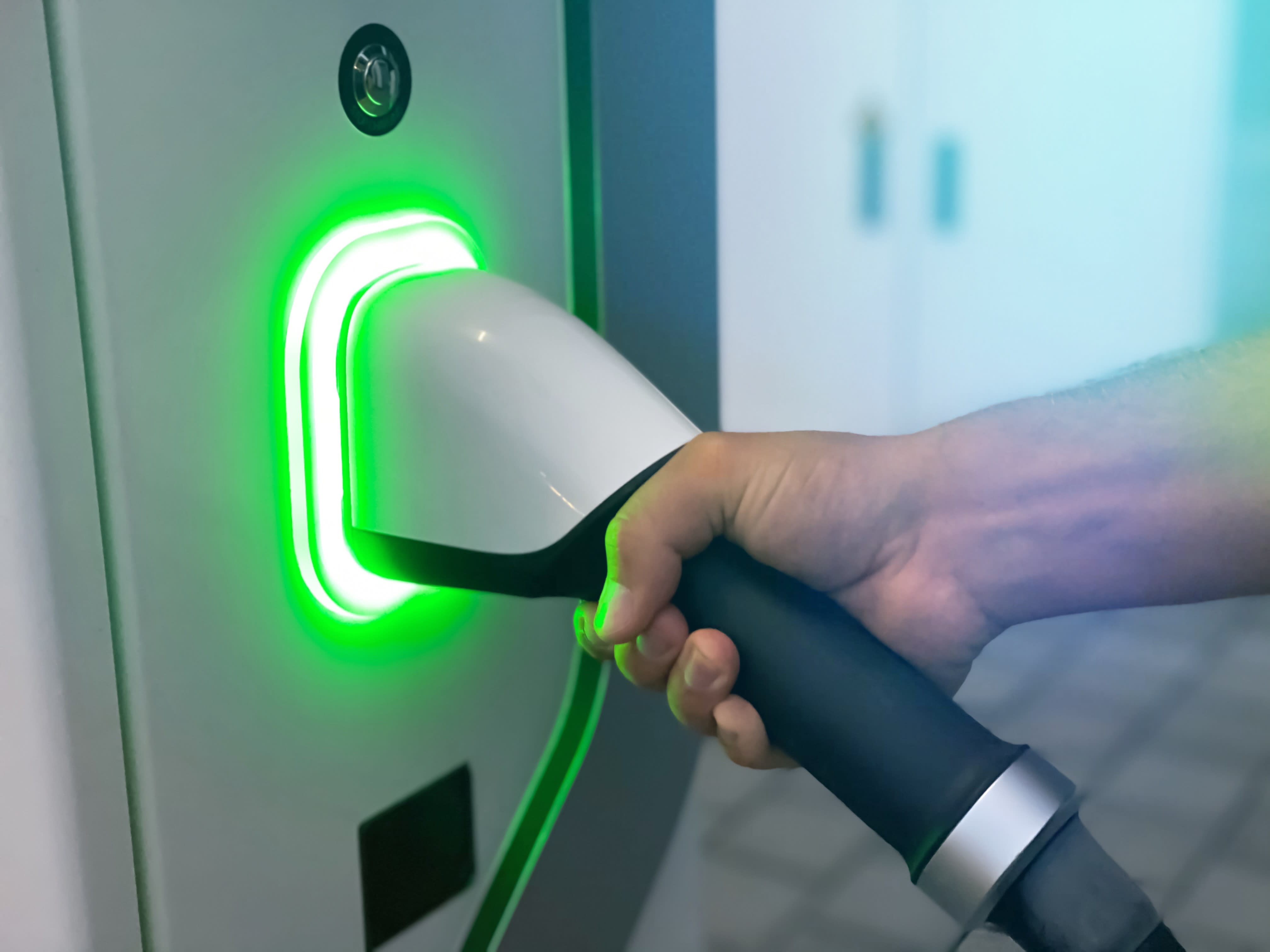
With gas prices up over 58% compared to last year, you might be thinking about switching to an electric car to save money.
But considering that electric vehicles tend to be more expensive than gas-fueled cars, and that electricity has its own costs, is it actually cheaper to go electric? The short answer is yes — although it also depends>Electric vehicles have a higher upfront cost
The average transaction price for an electric vehicle (EV) is $56,437, according to Kelley Blue Book — roughly $10,000 higher than the overall industry average of $46,329 that includes gas and EVs. In terms of pricing, an EV is equivalent to an entry-level luxury car.
To save time charging EVs and extend battery life, many drivers also install what's known as "Level 2" chargers in their home, for a total cost of around $2,000, including installation. With a Level 2 charger, it will take less than eight hours to charge your vehicle, according to JD Power.
Most EVs come with a Level 1 charging cable that can be plugged into a common 120-volt household electric outlet, but it can take up to 40 hours to fully charge your vehicle. It's cheaper, but less convenient.
Tax credits can the lower cost of an electric vehicle
While surveys show that the price gap between EVs and gas-fueled vehicles is expected to shrink in the next decade, that will depend>Electric vehicles tend to have cheaper fuel and maintenance costs
While EVs usually have higher upfront purchase prices, owners can save a lot>So which is cheaper overall?
A U.S. Department of Energy report shows that after 15 years, electric cars generally cost less than similar gas-only models, when you factor in the price, maintenance, financing, repairs, the federal tax break and fuel costs. The electric version of a small SUV costs $0.4508 per mile, $0.0219 less than the $0.4727 per mile rate you get with a similar gas-based model.
Based>While cheaper, electric vehicles come with trade-offs
One of the biggest knocks against EVs is that charging the car's battery isn't convenient if you don't have access to commercial charging stations or at least a Level 2 charger at home. And even with the faster Level 3 chargers that you find at commercial stations, it can still take up to 30 minutes to fully charge your EV.
"Time is money if you have to sit around a couple hours waiting for your car to charge," says Matt DeLorenzo, senior managing editor for Kelley Blue Book. "That's the competitive disadvantage EVs have, they're inflexible when it comes to refueling requirements, whereas a gas car you just have a few minutes at a gas station and you're back on the road."
Since there are only around 46,000 commercial charging stations compared to 150,000 gas stations, potential buyers will want to make sure one is available nearby, using this interactive map. And since the average range of EVs is under 200 miles, you might want to consider a hybrid electric vehicle if you frequently drive long-haul trips. A hybrid has both an electric motor and a gas engine, which allows you to switch between the two depending on the how far you plan to drive.
"If you only have one car, I think you're better off owning a plug-in hybrid," suggests DeLorenzo. "With gas at $5 a gallon [in some parts of California], you'd get a car with 30-50 miles of electric range, and if you only commute 15-20 miles, you could use it mostly as an electric vehicle. But if you have a road trip, or there's a power failure, you have a gas engine to fall back on."

评论
发表评论